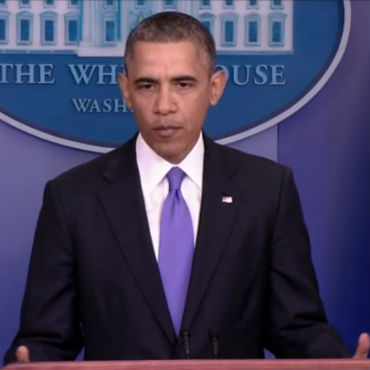President puts IT procurement in the spotlight

Best practices, clear lines of authority would have saved HealthCare.gov, say former officials -- and most reforms could be made under current law.

President Barack Obama spoke to the press on Nov. 14 about launch problems with HealthCare.gov and the larger challenges of federal IT procurement.
President Barack Obama told reporters that he was not kept up to date on pre-launch problems with the HealthCare.gov website in the run-up to the Oct. 1 open enrollment date.
"I was not informed directly that the website would not be working as — the way it was supposed to," Obama said in a Nov. 14 press conference. "You know, I'm accused of a lot of things, but I don't think I'm stupid enough to go around saying, this is going to be like shopping on Amazon or Travelocity, a week before the website opens, if I thought that it wasn't going to work."
Obama took aim at the federal IT procurement system as one of the culprits for the deeply flawed website launch. He noted that while his campaign could freely build whatever technology suited its needs, the situation is different in federal IT. "If you're doing it at the federal government level, you're going through 40 pages of specs and this and that and the other, and there are all kinds of laws involved, and it makes it more difficult. It's part of the reason why, chronically, federal IT programs are over budget, behind schedule," Obama said.
As Obama's "tech surge" team, headed by former administration official Jeff Zients and assisted by federal CTO Todd Park, looks to put HealthCare.gov on stable footing, some in government are looking to future IT reforms.
"I think the way we implement technology, the speed at which technology moves, often times it's challenging to drive innovation in the context of cycles that take six to nine months, a year or more to implement technology, and by the time you get the procurement done, the technology will change," federal CIO Steve VanRoekel told reporters after a speech in October. "But procurement's not the only thing. It takes great governance, great management, an eye toward cybersecurity -- all of these things have to come into concert."
And according to two top former federal IT officials, the government already has many of the tools and strategies it needs to drive success in complex, long -term IT projects.
Part of the problem with HealthCare.gov goes back to the planning stages, before contractors were even hired, said former Bush administration IT official Karen Evans. The requirements of the 2010 health care law and its accompanying regulations have an impact on how the HealthCare.gov website was designed and scoped. Evans, who served for six years in the Office of Management and Budget, said the problems with HealthCare.gov are emblematic of a flawed governance structure.
"IT projects are particularly good at highlighting management failings because they require coordination between many different parts of an organization," she said in a Nov. 13 hearing of the House Oversight and Government Reform Committee. "If the agency CIO is not actively at the management table, participating in those decisions and, more importantly, explaining the ramifications of the policy decisions they are making, then projects get off-track and ultimately fail."
IT projects are particularly good at highlighting management failings.
-- Karen Evans
Richard Spires, the former CIO of the Department of Homeland Security [and an occasional FCW contributor], testified at the same hearing. He said the rollout of HealthCare.gov demonstrates "fundamental weaknesses in the program management processes" and an incorrect balance between the business and IT organizations at the Centers for Medicare and Medicaid Services, which was responsible for building the.
Spires told legislators that integrated testing should have been completed six months before launch, with three months of end-to-end testing, and a pilot phase or beta period in which a select user group could have discovered further bugs in the system, giving developers time to make corrections.
While Spires recommended passing legislation to give agency CIOs clear lines of authority and visibility into projects and to establish government-wide centers for sharing best practices, most of the reforms he suggests could be adopted into the business of IT procurement and development under current law.
The stakes are high, Spires noted, not simply to avoid public embarrassments like the launch of a buggy, untested website, but because IT is going to be increasingly important to the efficient delivery of government services in an era of technological change and constrained federal budgets.
"Our government, if it more effectively manages IT, can harness its transformational capability, significantly improving government's effectiveness and efficiency," Spires said.



